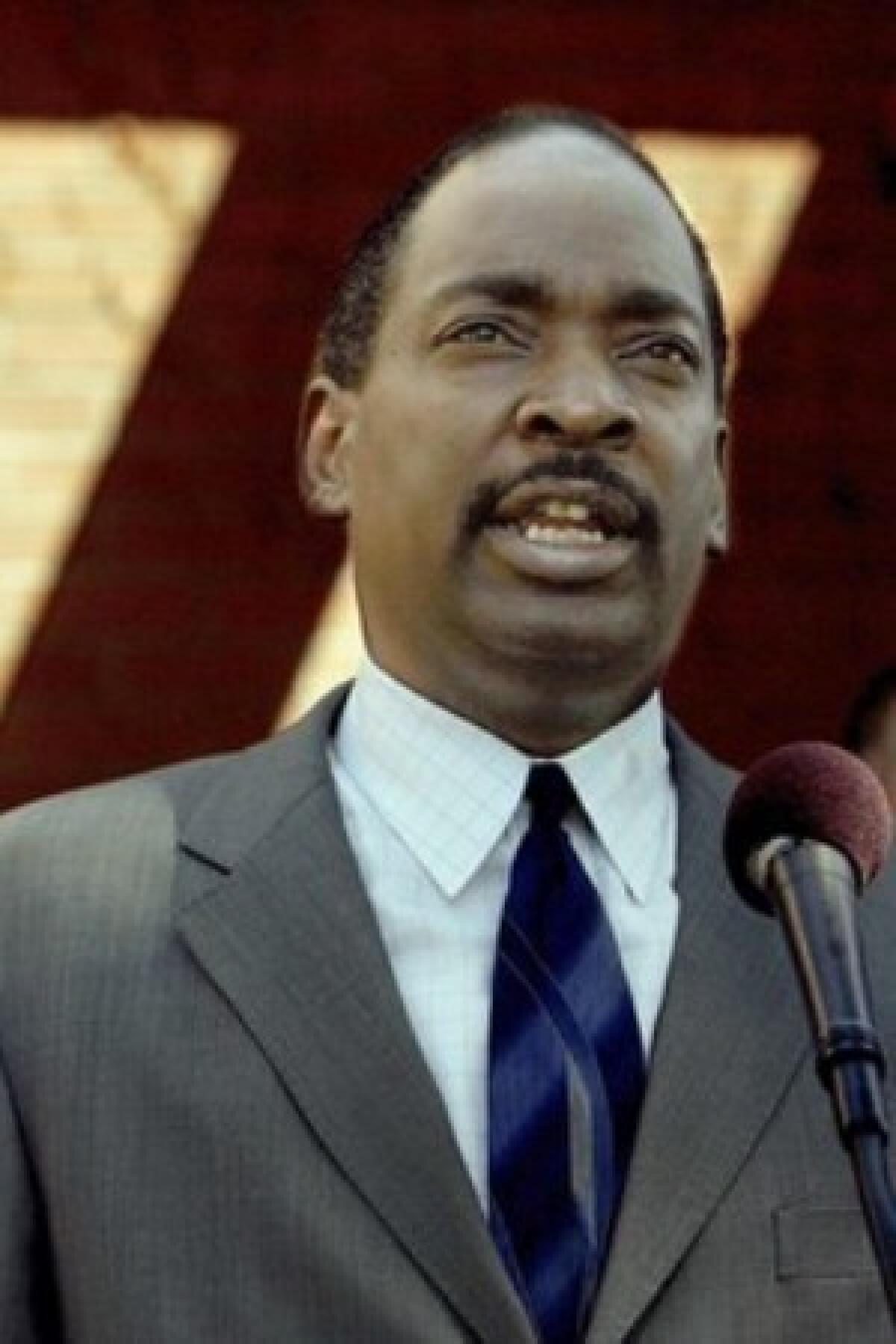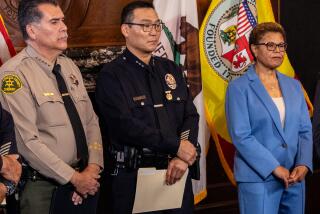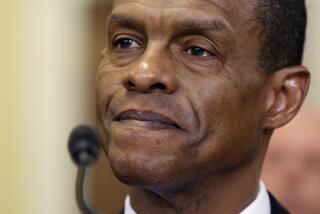Kenneth Otto Garner dies at 53; LAPD deputy chief improved minority relations, helped diversify police department

Los Angeles Police Department Deputy Chief Kenneth Otto Garner, who played central roles in helping to diversify the LAPD, improve the agency’s ties to minority communities and stem crime in South L.A., died unexpectedly early Sunday morning. He was 53 and had spent nearly 32 years in an LAPD uniform.
Garner reportedly collapsed in his Los Angeles home. The cause of death had not been determined, although preliminary findings indicate natural causes, according to the county coroner’s office.
People close to Garner said they believed he died of heart failure.
Garner joined the LAPD in 1977 and rose through the ranks to become its second-highest-ranking black officer.
At first he worked patrol and special plainclothes assignments throughout the neighborhoods of South L.A.
He went on to hold an array of command positions, including overseeing law enforcement in the Foothill area of the San Fernando Valley, in L.A.’s Westside and on the city’s fleet of public buses.
In many ways, Garner came to represent the new face of a police department that, under Chief William J. Bratton, has pushed hard to reform itself and shake free of a deeply ingrained reputation among minority communities as a racist, corrupt and at times brutal institution.
“He grew up at a time when the department he loved so much wasn’t loved in these neighborhoods,” Bratton told The Times on Sunday. “He committed his professional life to changing that.”
Law enforcement officials in the LAPD and other agencies, as well as politicians and community leaders, were shaken and deeply saddened by the news of Garner’s death. Their response underscored what many called his rare success in earning the respect and trust both of the officers he commanded and of Angelenos across racial lines.
Garner “tirelessly worked to make the LAPD a kinder, gentler, reform-oriented and top crime-fighting organization,” said Earl Ofari Hutchinson, head of the Los Angeles Urban Policy Roundtable. “He was a true friend . . . to the community.”
Paul M. Weber, head of the union that represents the department’s rank-and-file officers, echoed Hutchinson, saying Garner “never bought into the idea that if he supported his cops, then . . . he couldn’t support the community. He struck that balance with incredible skill. He will be missed.”
Since taking over command of the department’s South Bureau a year ago, Garner kept long hours, often returning to his desk after neighborhood meetings at local churches or community centers and staying late into the night to pore over spreadsheets of crime data, said Cmdr. Andrew Smith, Garner’s assistant commanding officer at South Bureau.
Smith said Garner demanded quick responses from his command staff when hot spots flared and, not one to rant or scream when problems arose, led with a calm, firm style.
“He was the guy people respected because they knew how well he had done the work when he was in their shoes,” Smith said.
City Councilwoman Janice Hahn, who worked closely with Garner on anti-gang initiatives, said he didn’t hesitate to give community members his cellphone number. “Here was a deputy chief who was acting like a senior lead officer,” she said, referring to community liaison officers of a much lower rank.
Bratton highlighted Garner’s work as head of the department’s recruitment efforts in 2005 as the LAPD was ramping up a high-stakes campaign to increase its ranks.
He pushed through changes to rigid hiring policies that, for example, automatically disqualified candidates with financial blemishes on their record.
The reforms, Bratton said, helped increase diversity in the department.
In recent months, Garner launched an unusual program in cooperation with local community groups aimed at helping young men reenter society after being released from prison.
The first group of convicts in the program is expected to be released soon, Bratton said, adding that he believed that the program would have grown into Garner’s proudest achievement.
“Instead, it will be his legacy,” Bratton said.
Garner was born in Hot Springs, Ark., on Nov. 28, 1955, and grew up in South Los Angeles. He earned a bachelor’s degree in psychology from Cal State Dominguez Hills in 1981.
He is survived by his parents and daughter.
Funeral arrangements are pending.
More to Read
Start your day right
Sign up for Essential California for news, features and recommendations from the L.A. Times and beyond in your inbox six days a week.
You may occasionally receive promotional content from the Los Angeles Times.







